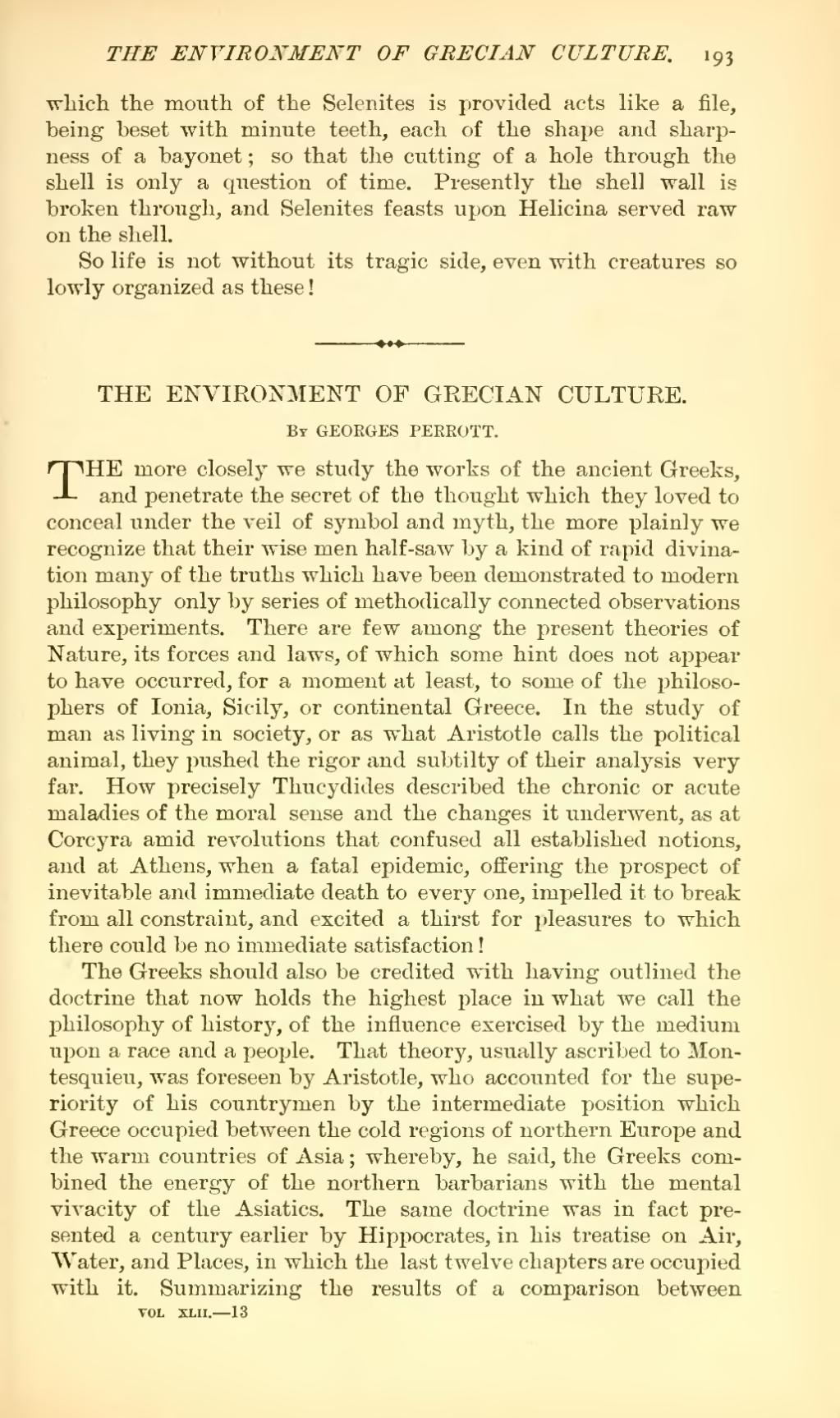which the mouth of the Selenites is provided acts like a file, being beset with minute teeth, each of the shape and sharpness of a bayonet; so that the cutting of a hole through the shell is only a question of time. Presently the shell wall is broken through, and Selenites feasts upon Helicina served raw on the shell.
So life is not without its tragic side, even with creatures so lowly organized as these!
| THE ENVIRONMENT OF GRECIAN CULTURE. |
By GEORGES PERROTT.
THE more closely we study the works of the ancient Greeks, and penetrate the secret of the thought which they loved to conceal under the veil of symbol and myth, the more plainly we recognize that their wise men half-saw by a kind of rapid divination many of the truths which have been demonstrated to modern philosophy only by series of methodically connected observations and experiments. There are few among the present theories of Nature, its forces and laws, of which some hint does not appear to have occurred, for a moment at least, to some of the philosophers of Ionia, Sicily, or continental Greece. In the study of man as living in society, or as what Aristotle calls the political animal, they pushed the rigor and subtilty of their analysis very far. How precisely Thucydides described the chronic or acute maladies of the moral sense and the changes it underwent, as at Corcyra amid revolutions that confused all established notions, and at Athens, when a fatal epidemic, offering the prospect of inevitable and immediate death to every one, impelled it to break from all constraint, and excited a thirst for pleasures to which there could be no immediate satisfaction!
The Greeks should also be credited with having outlined the doctrine that now holds the highest place in what we call the philosophy of history, of the influence exercised by the medium upon a race and a people. That theory, usually ascribed to Montesquieu, was foreseen by Aristotle, who accounted for the superiority of his countrymen by the intermediate position which Greece occupied between the cold regions of northern Europe and the warm countries of Asia; whereby, he said, the Greeks combined the energy of the northern barbarians with the mental vivacity of the Asiatics. The same doctrine was in fact presented a century earlier by Hippocrates, in his treatise on Air, Water, and Places, in which the last twelve chapters are occupied with it. Summarizing the results of a comparison between

